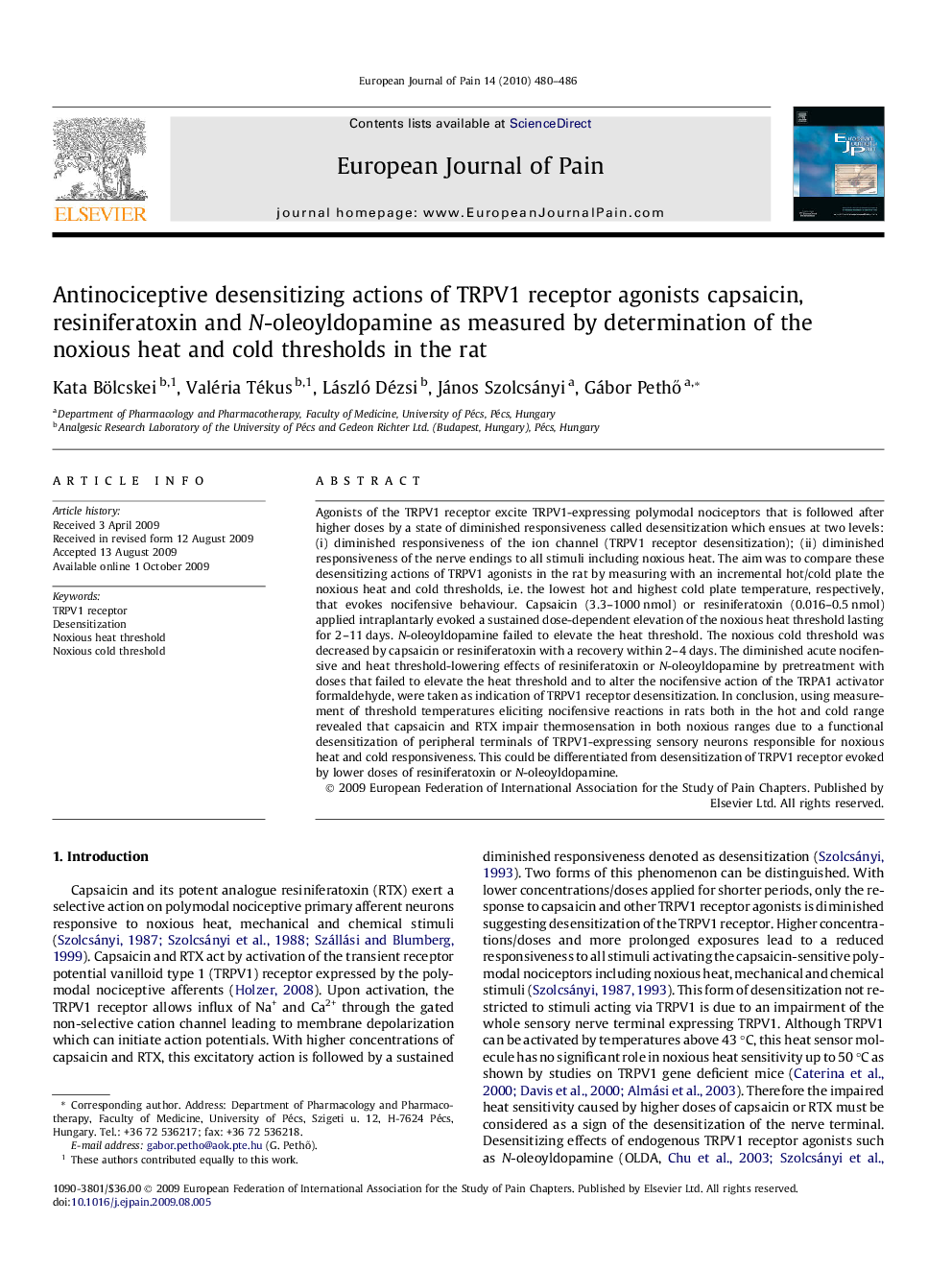| کد مقاله | کد نشریه | سال انتشار | مقاله انگلیسی | نسخه تمام متن |
|---|---|---|---|---|
| 907265 | 1472904 | 2010 | 7 صفحه PDF | دانلود رایگان |
عنوان انگلیسی مقاله ISI
Antinociceptive desensitizing actions of TRPV1 receptor agonists capsaicin, resiniferatoxin and N-oleoyldopamine as measured by determination of the noxious heat and cold thresholds in the rat
دانلود مقاله + سفارش ترجمه
دانلود مقاله ISI انگلیسی
رایگان برای ایرانیان
موضوعات مرتبط
علوم زیستی و بیوفناوری
علم عصب شناسی
علوم اعصاب سلولی و مولکولی
پیش نمایش صفحه اول مقاله

چکیده انگلیسی
Agonists of the TRPV1 receptor excite TRPV1-expressing polymodal nociceptors that is followed after higher doses by a state of diminished responsiveness called desensitization which ensues at two levels: (i) diminished responsiveness of the ion channel (TRPV1 receptor desensitization); (ii) diminished responsiveness of the nerve endings to all stimuli including noxious heat. The aim was to compare these desensitizing actions of TRPV1 agonists in the rat by measuring with an incremental hot/cold plate the noxious heat and cold thresholds, i.e. the lowest hot and highest cold plate temperature, respectively, that evokes nocifensive behaviour. Capsaicin (3.3-1000Â nmol) or resiniferatoxin (0.016-0.5Â nmol) applied intraplantarly evoked a sustained dose-dependent elevation of the noxious heat threshold lasting for 2-11Â days. N-oleoyldopamine failed to elevate the heat threshold. The noxious cold threshold was decreased by capsaicin or resiniferatoxin with a recovery within 2-4Â days. The diminished acute nocifensive and heat threshold-lowering effects of resiniferatoxin or N-oleoyldopamine by pretreatment with doses that failed to elevate the heat threshold and to alter the nocifensive action of the TRPA1 activator formaldehyde, were taken as indication of TRPV1 receptor desensitization. In conclusion, using measurement of threshold temperatures eliciting nocifensive reactions in rats both in the hot and cold range revealed that capsaicin and RTX impair thermosensation in both noxious ranges due to a functional desensitization of peripheral terminals of TRPV1-expressing sensory neurons responsible for noxious heat and cold responsiveness. This could be differentiated from desensitization of TRPV1 receptor evoked by lower doses of resiniferatoxin or N-oleoyldopamine.
ناشر
Database: Elsevier - ScienceDirect (ساینس دایرکت)
Journal: European Journal of Pain - Volume 14, Issue 5, May 2010, Pages 480-486
Journal: European Journal of Pain - Volume 14, Issue 5, May 2010, Pages 480-486
نویسندگان
Kata Bölcskei, Valéria Tékus, László Dézsi, János Szolcsányi, Gábor PethÅ,